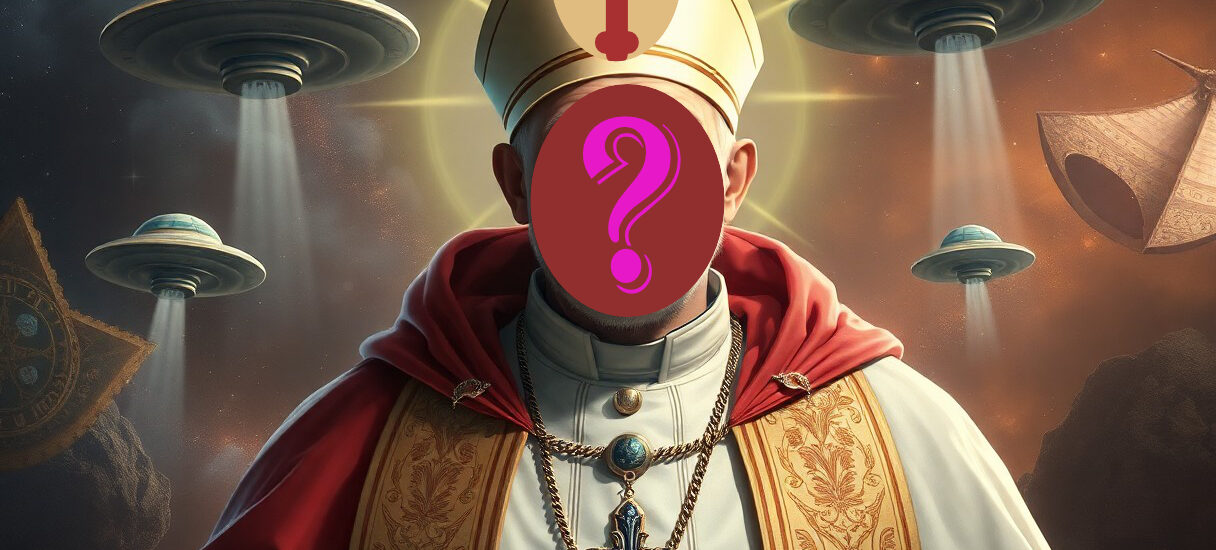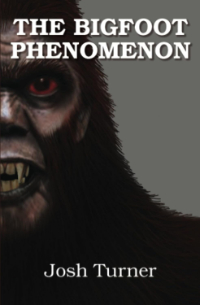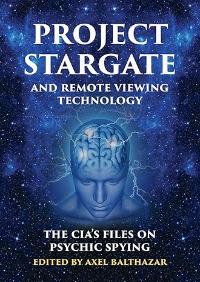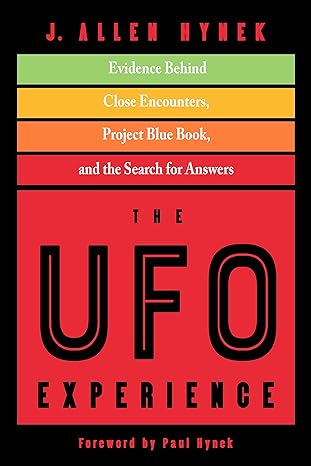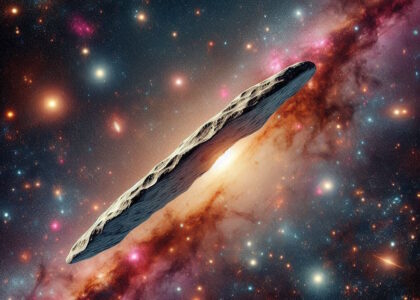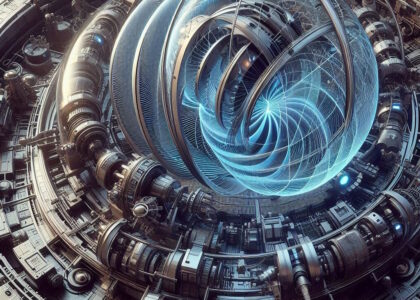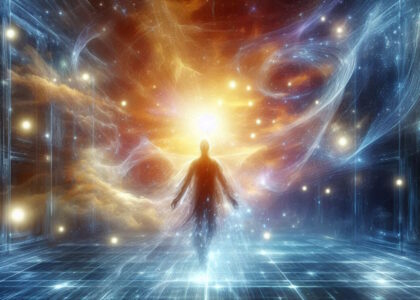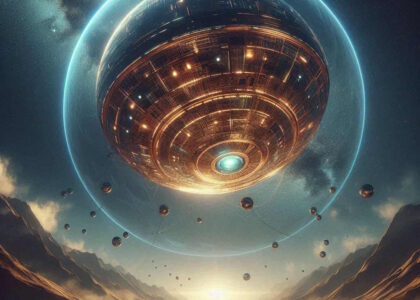Most people are unaware of the potential role Pope Leo XIV could play in revealing the truth about extraterrestrial life. As someone interested in the intersection of faith and science, you might find it significant that a former Vatican adviser believes this newly elected pope aims to lead the Catholic Church in openly addressing UFO phenomena. If you’ve been following recent government disclosures and theological discussions, you’ll want to explore how Pope Leo’s leadership could influence global perspectives on humanity’s place in the universe.
The Papal Shift: What Leo XIV Represents for the Church
By choosing the name Leo XIV, Cardinal Prevost signals a potential new chapter where science and faith converge more openly. This papal shift hints at an evolving Church ready to confront modern mysteries like extraterrestrial life head-on. You can expect Leo XIV to continue the legacy of his namesakes in fostering dialogue between theology and empirical discovery, potentially guiding the Church into a bold era of transparency and intellectual exploration that responds directly to growing public and governmental disclosures on UFO phenomena.
Historical Context of Papal Names
Papal names often carry deep symbolic weight, reflecting historical legacies or theological emphases. Leo XIV aligns itself with the long line of Popes named Leo, notably Leo XIII, who was pivotal in promoting Thomistic philosophy. This name choice may indicate a desire to reaffirm tradition while addressing contemporary issues. In this case, the reference to Leo’s association with astronomical interests and scientific inquiry roots Pope Leo XIV within a heritage that embraces knowledge beyond doctrinal confines.
The Symbolism of the Vatican Observatory
Founded by Pope Leo XIII in the late 1800s, the Vatican Observatory serves as a testament to the Church’s longstanding commitment to astronomy and scientific research. It represents a bridge between faith and reason, underscoring the Church’s recognition of the cosmos as part of God’s creation. This symbolism becomes especially relevant as Pope Leo XIV’s election revives connections to that legacy, potentially positioning the Vatican as a key player in forthcoming disclosures about extraterrestrial life.
The Vatican Observatory’s legacy is more than symbolic; it actively contributes to cutting-edge astronomical research, hosting advanced telescopes and collaborating internationally with top scientists. It has helped legitimize the idea that scientific discovery can coexist with spirituality within the Catholic framework. Its reemergence in the context of Pope Leo XIV’s papacy suggests a renewed institutional embrace of scientific inquiry, signaling to you that the Church is preparing to address cosmic phenomena—including UFO realities—in an authoritative and informed manner.
Extraterrestrial Life: A Theological Perspective
The Catholic Church’s engagement with the possibility of extraterrestrial life stretches beyond mere curiosity, touching on profound questions about humanity’s spiritual narrative. As you consider this emerging frontier, the Church appears poised to integrate new cosmic realities with enduring theological frameworks. This integration may challenge traditional anthropocentric views, inviting a broader understanding of creation that includes nonhuman civilizations, without negating the core tenets of faith.
The 2009 Vatican Statement on UFOs
In 2009, the Vatican formally acknowledged the scientific plausibility of extraterrestrial life and emphasized the importance of theological dialogue about its implications. This statement opened doors for future discussions, encouraging scholars and clergy to reflect on how such discoveries could align with or expand existing doctrine. You can see this as a foundation for Pope Leo XIV’s anticipated disclosures, signaling an institutional readiness to confront these realities openly.
Aligning Theology with Cosmic Realities
Rather than viewing extraterrestrial revelation as contradictory, theology can evolve by incorporating insights from the cosmos to deepen understanding of consciousness and existence. You’re invited to explore how doctrines about the soul, creation, and divine purpose might be interpreted through a universal lens, potentially revealing new dimensions of spiritual truth that resonate with the reality of intelligent life beyond Earth.
Expanding on this alignment requires addressing longstanding theological concepts like imago Dei—the belief that humans are created in God’s image—and examining whether this extends to extraterrestrial beings. Theological scholars today are debating if nonhuman intelligence might share this divine imprint or possess unique spiritual characteristics. By embracing such questions, you see how theology becomes dynamic, adjusting to scientific discoveries while maintaining its moral and philosophical foundations. This dialogue could redefine humanity’s cosmic role, encouraging a more inclusive spirituality that accounts for a pluralistic universe.
The Unfolding Narrative of Disclosure
The discourse on extraterrestrial disclosure has accelerated, combining government revelations with anticipated religious acknowledgment. As you follow the developments, convergence is apparent between scientific data, intelligence testimonies, and theological openness, hinting at a coordinated unveiling. Pope Leo XIV’s anticipated role signals a historic moment where institutions traditionally seen as separate might unify in addressing humanity’s cosmic context. This multidimensional approach reshapes the narrative, moving beyond speculation toward a broader societal conversation about humanity’s place amid the stars.
Daniel Sheehan’s Insights on Government and Church Connections
Daniel Sheehan’s unique experience reveals deep links between political leaders, intelligence agencies, and the Vatican dating back to the 1970s. His account of President Jimmy Carter’s efforts to access Vatican UFO files—blocked by CIA Director George H.W. Bush—illustrates longstanding governmental sensitivities. Sheehan suggests Pope Leo XIV aims to bridge these historical gaps by combining scientific inquiry with theological reflection, positioning the Catholic Church as an necessary participant in imminent disclosures alongside national governments.
Historical Attempts at Disclosure and Their Implications
Your understanding of UFO disclosure must include past efforts that shaped current expectations. The late 20th century saw multiple attempts by political figures and religious scholars to bring UFO information into the public sphere. These efforts often stalled due to institutional secrecy and the challenge of reconciling extraterrestrial phenomena with established worldviews. Recognizing these earlier attempts helps frame Pope Leo XIV’s potential disclosure as part of a longer arc toward transparency.
Looking deeper, historical disclosure initiatives, such as those during the post-WWII era and the 1970s, often encountered resistance from intelligence communities concerned about national security and social upheaval. The tension between secrecy and transparency is exemplified by cases like the 1947 Roswell incident and declassified projects like Blue Book. The Vatican’s late 19th-century establishment of the Observatory signaled early ecclesiastical interest in cosmic phenomena, yet open discussion on extraterrestrial life remained cautious. Aligning these historical milestones helps you appreciate the evolving interplay between disclosure advocates, governments, and the Church, setting the stage for a potential paradigm shift under Pope Leo XIV’s leadership.
How Belief Systems May Transform with New Revelations
The disclosure of extraterrestrial life could prompt significant shifts in how belief systems interpret humanity’s place in the cosmos. You might find long-held spiritual narratives evolving to accommodate these realities, encouraging deeper integration between empirical science and theological insights. As Pope Leo XIV aims to bridge faith and scientific understanding, faith communities worldwide may begin reconsidering doctrines, rituals, and teachings in light of new cosmic perspectives, reshaping your spiritual worldview alongside global cultural paradigms.
Potential Impacts on Catholic Doctrine
For the Catholic Church, revelations about extraterrestrial civilizations could challenge traditional doctrines without necessarily contradicting core beliefs. You can expect theological frameworks to expand, emphasizing the universality of God’s creation beyond Earth. Concepts of salvation, soul, and divine purpose may be reinterpreted to acknowledge nonhuman intelligences, while maintaining Christ’s central role. This evolution aligns with the Church’s historical openness to scientific discovery, demonstrated by the Vatican Observatory’s longstanding mission to harmonize faith and reason.
Broader Theological Implications for World Religions
Across global faiths, you’ll see interfaith dialogues intensify as religious leaders confront the spiritual significance of extraterrestrial life. Hindu cosmology, with its vast universes, might find easier integration of such revelations, while Jewish and Buddhist traditions could emphasize new interpretations of consciousness and existence. These shifts could foster a unified theological response, encouraging cooperation in addressing humanity’s expanded cosmic identity and the ethical questions arising from potential contact with nonhuman civilizations.
Diving deeper, consider how Judaism’s exploration of divine covenant might extend to extraterrestrial beings, prompting reinterpretation of sacred texts to include a more expansive creation narrative. Hinduism’s layered cosmology with multiple realms easily accommodates intelligent life beyond Earth, making its ancient philosophies fertile ground for integrating cosmic neighbors. Buddhism’s focus on consciousness and interconnectedness challenges you to think beyond physical form, potentially viewing extraterrestrial life as part of the same spiritual continuum. These diverse approaches illustrate how revelation could initiate a transformative interfaith conversation about existence, morality, and the divine, possibly leading to collaborative frameworks that unify humanity’s search for meaning in a newly expanded universe.
Let’s also not forget that in some American Protestant circles, aliens are seen as fallen angels, or demons, showing how that particular theological position relies heavily on Hell-centric ideas obsessed with fear based beliefs. The very idea that there may be reptilian aliens and that the snake from Genesis is a reptile cannot be overlooked by some.
The Future of Disclosure: What Awaits Us
You can expect a multi-layered unfolding of information as governments and religious institutions move toward transparency about extraterrestrial phenomena. This won’t be a simple announcement but a gradual integration of new realities into global society. As Pope Leo XIV bridges science and faith, your perception of humanity’s place in the cosmos may evolve alongside changes in policy, technology, and theology. Disclosure could reshape geopolitics, science, and spirituality, demanding adaptation on both personal and institutional levels in the years ahead.
Congressional Testimonies and Expert Opinions
Over 40 experts with classified knowledge have testified to the Senate Intelligence Committee, reinforcing claims first made by former official David Grusch regarding recovered nonhuman vehicles and biological entities. These testimonies have fueled congressional interest in declassification efforts, steadily pressing the government for transparency. You can follow these revelations as they surface through official channels, knowing they represent a convergence of whistleblower credibility and institutional commitment to clarifying decades-old mysteries.
Predictions for the Next Decade of Disclosure
Expect a cascade of revelations involving both scientific evidence and institutional acknowledgments from faith leaders, including Vatican disclosure initiatives led by Pope Leo XIV. Within the next ten years, mainstream acceptance of extraterrestrial life may become part of global discourse, propelled by government releases, academic publications, and interfaith dialogues that redefine humanity’s spiritual and existential frameworks.
Looking deeper into the decade ahead, you’ll likely witness coordinated disclosures that coincide with advancements in space exploration, SETI research, and AI-assisted data analysis. Ongoing hearings, like those Daniel Sheehan will join, suggest that strategic declassification is planned to prepare the public gradually. The church’s engagement, especially with Pope Leo XIV’s emphasis on reconciling science with theology, could be pivotal in easing societal transitions—allowing your worldview to expand without abrupt upheaval. This decade may well mark the transformation of humanity’s narrative from isolation to cosmic community.
To wrap up
Considering all points, you may find that Pope Leo XIV has the potential to be the UFO Disclosure Pope, bridging faith and science in a way that could reshape your understanding of humanity’s place in the cosmos. With historical ties to astronomy and support from influential voices like Daniel Sheehan, his leadership might steer the Church toward acknowledging extraterrestrial life. This unfolding disclosure could challenge and enrich your perspective on theology, consciousness, and the universe, as multiple global institutions prepare to share what they know in the years ahead.
What do YOU think about all of this?


